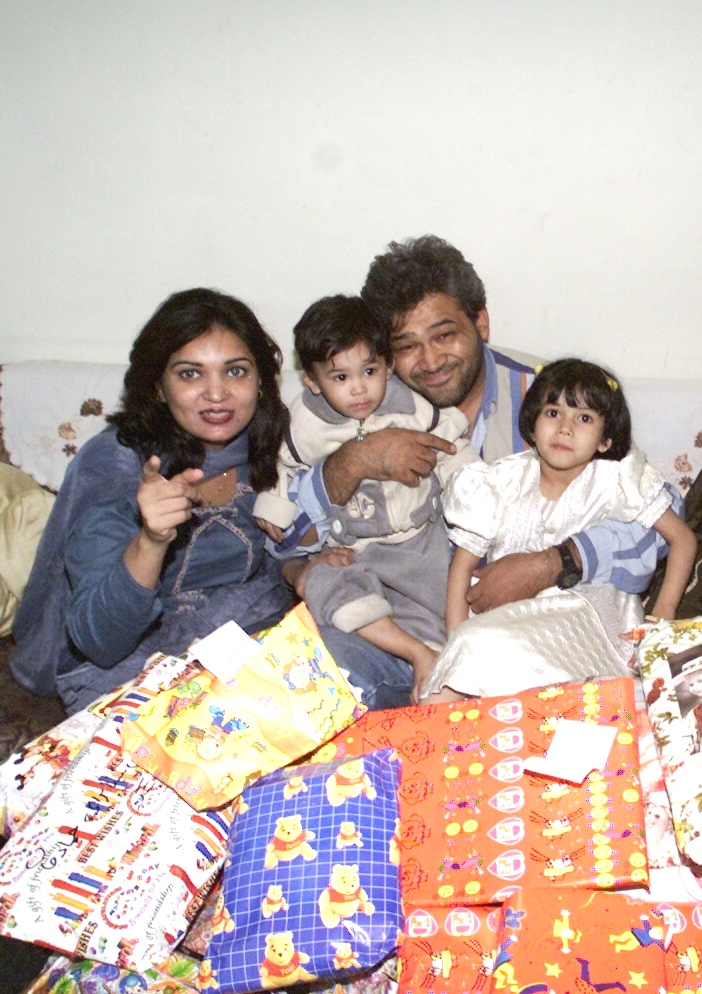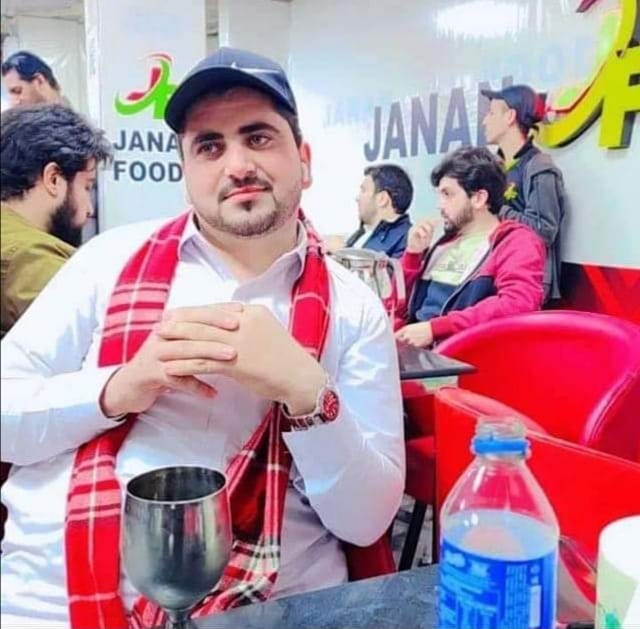Saadia’s story,Recipient of RMNP Sadiq Press Freedom Award 2011 By Anealla Safdar

Before Saadia Sehar’s husband went to cover a story in Afghanistan for Reuters, she teased him to grow a beard before attempting to report on the Taliban.
Fearful of what could happen to journalists brave enough to cover post 9/11 Afghanistan, just two months after the terrorist attacks that struck America in September 2001, Saadia warned Aziz Ullah Haidari, an Afghan, to stay away from the war.
Before Saadia Sehar’s husband went to cover a story in Afghanistan for Reuters, she teased him to grow a beard before attempting to report on the Taliban.
Fearful of what could happen to journalists brave enough to cover post 9/11 Afghanistan, just two months after the terrorist attacks that struck America in September 2001, Saadia warned Aziz Ullah Haidari, an Afghan, to stay away from the war.
He had been working at the news agency for five years as a correspondent and photographer.
On November 17, despite her warnings, he travelled from Pakistan to the Jalalabad province.
“When he left, it was the first day of Ramadan. He was fasting,” she said.
As he and dozens of foreign journalists made their way to Kabul, their convoy was ambushed. Aziz, the 33 year old man Saadia had been married to for five years, the father of her two young children, was killed. Armed men working for the Taliban shot dead at least three male journalists, including Aziz, and brutally raped one Italian female journalist before breaking her bones and then murdering her too.
Continuing Aziz’s legacy
Broken-hearted Saadia, a Pakistani who had fought with her conservative parents to accept her mixed marriage, was in a complete state of shock.
“I never thought he would leave me like this,” she said, in an interview with the Doha Centre for Media Freedom.
Having given up working, she was a full-time housewife with a penchant for taking photographs.
“I wanted to carry on in his field,” she explained. “I wanted to carry on his mission and journalism.”
As a single mother starting from scratch, Saadia has become a prominent photojournalist in the country over the past decade.
She’s worked for publications, newswires and development organisations including Nikhar, a local urdu weekly, the INP news agency, UNICEF and the Xinhua News agency.
Earlier this month, the Rural Media Network Pakistan, a non-profit organisation, recognised her bravery and courage, awarding her Pkr 125,000 ($1,406) in an annual press freedom prize, sponsored by the World Association of Newspapers & News Publishers.
“The recognition of Saadia for the award is a symbol of struggle for the right of information and a reminder to international community about the tragic conditions Pakistan has been suffering since the war on terror after 9/11 attacks ,” said the RMNP president Ehsan Ahmed. “Saadia Sehar has set a new precedent for women in Pakistan media by adopting her husband‘s profession after his brutal murder.”
You are a woman. You can’t do this.’
Being married to a well-known and successful journalist did not open any doors for her as she attempted to break into journalism.
“We live in a male oriented society,” said the photojournalist. “When I joined this field, it was mostly men that discouraged me. ‘You are a woman, you can’t do this’ they told me. ‘How can you hold a camera? How can you network in a seminar? How can you cover a protest?’ they asked me.”
After a brief stint at her husband’s former employer Reuters, Saadia quit after the bureau chief refused to allow her to take on Aziz’s position completely. Desperate to continue his legacy, she moved to Visual News where she worked for six years.
Speaking about a traumatic job she covered, reporting from northern Pakistan in 2005 after a devastating earthquake hit, she describes the experience as ‘the most memorable.’
“I remember that one clearly,” she said. “I felt very sad. I saw lots of situations there; people trapped in houses, people injured, people dying. In Muzaffarabad, I saw a lot of death and damage. Villages were totally destroyed. I was there for one week, without any clothes or food. I filed a big story, and I still remember it as an important experience in my life.”
Fighting for freedom
As the environment for journalists in Pakistan has worsened, however, the most troubling events in media are no longer having to cover disasters. The country’s record for its treatment of journalists is in decline, and Saadia has not escaped the brutality often inflicted on those working in the industry.
In September 2007, she was beaten and arrested by police in the capital city, Islamabad, while covering a demonstration against former military dictator Pervez Musharraf . At least 12 other journalists were also injured. Two months later, she was again arrested and detained for a night in Islamabad while protesting against the ban on GEO, a television station, from transmitting.
“I think our media is not free,” she said. “When we want to say anything, when we want to talk about the reality, they punish us. I’ve left jobs because of that. I had to file stories and pictures that don’t hold any truth in Pakistan. They don’t want any truth.”
But with a decade of experience under her belt, Saadia looks set to continue her husband’s legacy, regardless of restrictions.
“He wanted to help poor people, and document their lives and struggles,” she said. “He worked for the freedom of the press. ‘I want to free the press. I want freedom of speech. If you don’t have freedom of speech, you can’t say anything’ he used to say to me.
Source: Anealla Safdar DCMF

